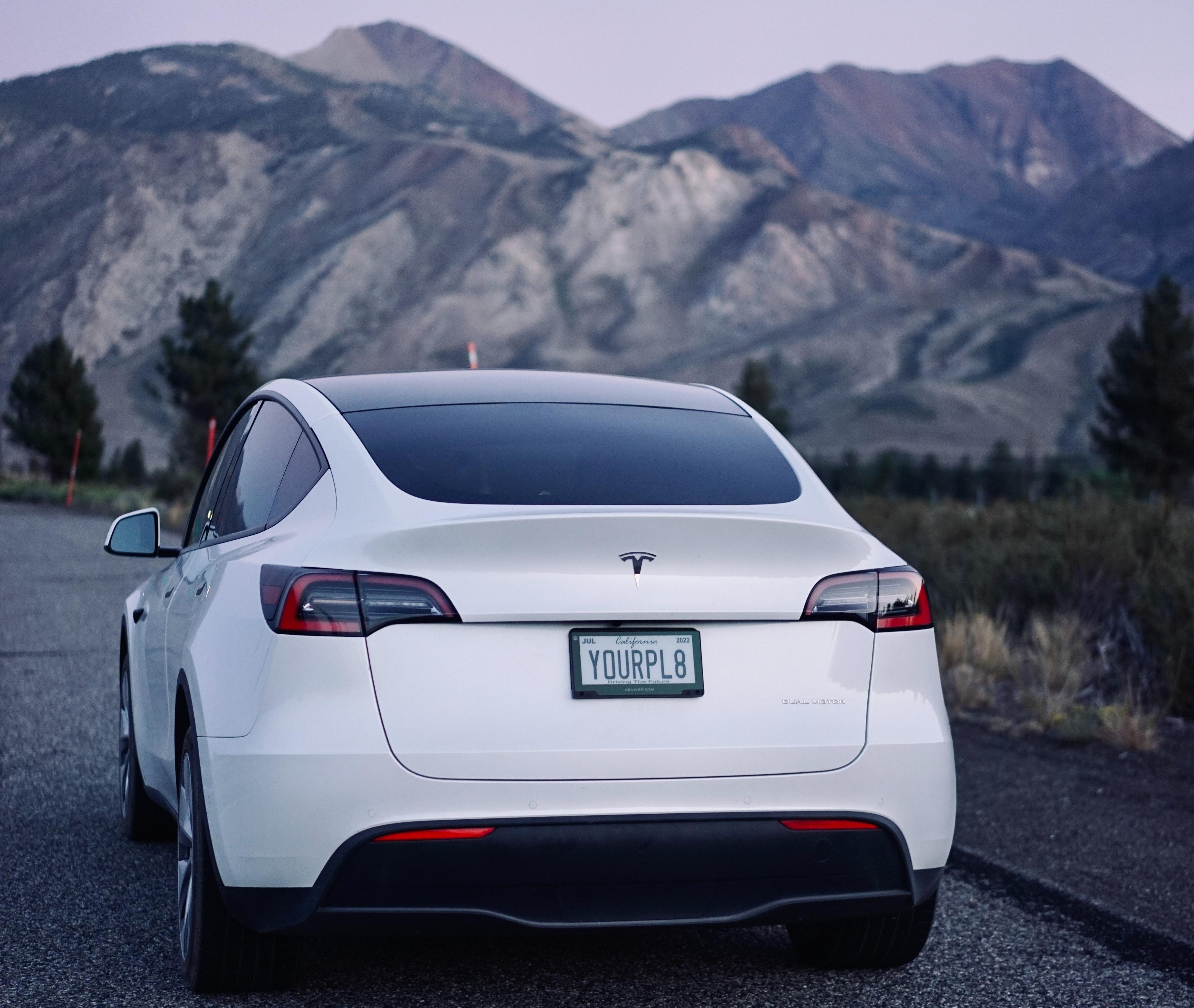

Get in the KNOW
on LA Startups & Tech
X
Courtesy of Xos and Rivian
EV Startups Rivian and Xos Highlight Uncertainty in a Volatile World
David Shultz
David Shultz reports on clean technology and electric vehicles, among other industries, for dot.LA. His writing has appeared in The Atlantic, Outside, Nautilus and many other publications.
The world of electric vehicle startups remains a rollercoaster of uncertainty. This week, we saw news from two of Southern California’s biggest names in the space with radically different announcements.
Let's start with the good: At Rivian, a tweet from CEO RJ Scaringe suggested that the company was back on pace to hit its production targets of 25,000 vehicles this year.
So what do I feel when I see a tweet like this?
A cautious optimism? Yes, but wrapped in a skepticism that the company has been wrong so many times before. This is a company that has historically failed to hit targets. Earlier this year supply chain and inflationary woes forced the company to raise prices on several of its vehicles earlier this year, which led to a shareholder lawsuit, some eventual backtracking, an apology, a stock slide, etc. They very well may turn the corner, and this news (among other things) is encouraging, but call me when that 25,000th car rolls off the line.
On the other side of town, electric trucking company, Xos, announced that it would lay off 8% of its staff according to reporting from Business Insider. This is a company that went public via SPAC merger on August 20, 2021 in a deal valued at $2 billion and has subsequently seen its stock lose nearly 80% of its value. According to the report, yesterday’s bad news is attributable to a cash shortage and “slowing macroeconomic growth.” It’s a common refrain for many startups across the nation: Inflation prompts the Fed to raise interest rates; investors get skittish; suddenly VC cash is hard to come by and profitability becomes more attractive than growth at all costs.
The whole EV space is an absolute rollercoaster, but it’s a roller coaster where you’re blindfolded and half the track may or may not exist in front of you. One minute you’re building momentum and the next minute your supply of door handle computer chips that you’re importing from Taiwan dries up without warning. Why car doors need computer chips is a great question, but we’ll leave that discussion for another time.
Why we need EVs, generally, is a much easier question, and its answer also partially explains why the sector (and the world) is so rife with uncertainty. Climate change is one of those rare problems that undermines its own solution: We need new technology to solve climate change, but climate change is stymying our ability to create that technology. Not every flood, heatwave, disease, or humanitarian crisis is directly attributable to climate change (you’d have a tough time convincing me that the Russian invasion of Ukraine is, at its core, a climate issue) but climate change makes flooding, heatwaves, zoonosis and civil strife more likely. And, as a result, at a time where societal cohesion is more critical than ever, it seems like the amplitude of uncertainty in business has never been higher.
Because we waited until the eleventh hour to start addressing it, climate change has become a pressure cooker on business. Mitigating its impacts requires that many things all happen simultaneously. It’s not enough to decarbonize the grid and convert cars to electric. We also need carbon capture, sustainable aviation fuels, a new way to make cement and a battery technology revolution. All at the same time. And any hiccup or setback means that the uncertainty we’re fighting to protect against grows.
And because the threats are so existential and multivariate it’s hard to imagine any CEO being able to anticipate them. Nobody saw COVID coming, not really. Not with the temporal acuity to steer a startup around the pothole. The other day my friend bought a bunch of Rivian stock. When I asked him why, he told me that he likes that they actually have cars on the road. Now, my friend is an idiot for a variety of reasons, but when it comes to betting on EV startups, actually delivering cars to consumers may be as good a tea leaf as any.
From Your Site Articles
- Rivian, Fisker Get Pummeled Amid Stock Market Selloff - dot.LA ›
- Xos Trucks Unveils New Electric Semi and Delivery Trucks - dot.LA ›
- Could Rivian Layoffs Actually Signal Progress? - dot.LA ›
- SoCal’s EV Industry Heads Into Strange Times - dot.LA ›
- The Barriers to EV Adoption That Actually Matter - dot.LA ›
- The Barriers to EV Adoption That Actually Matter - dot.LA ›
- Xos Secures Multi-Million Dollar Armored EV Deal - dot.LA ›
Related Articles Around the Web
David Shultz
David Shultz reports on clean technology and electric vehicles, among other industries, for dot.LA. His writing has appeared in The Atlantic, Outside, Nautilus and many other publications.
TikTok Videos Will Get 'Content Levels', Sort Of Like 'R' Rated Movies
02:00 AM | July 13, 2022
Movies, music and video games have long received content ratings to shield kids from mature media. Films featuring sex scenes or gory violence are rated “R,” while albums full of curse words are slapped with the “Parental Advisory” label.
Nothing like that exists in the Wild West of user-generated social media. But TikTok on Wednesday said it is building something similar: a new system to organize content based on thematic maturity. In the coming weeks, the Culver City-based company will roll out an early version, with the goal of preventing “overtly mature themes” from reaching teens. TikTok is calling it “Content Levels.”
“Many people will be familiar with similar systems from their use in the film industry, television, or gaming and we are creating with these in mind while also knowing we need to develop an approach unique to TikTok,” Cormac Keenan, TikTok’s head of Trust and Safety, wrote in a blog post.
The company said it will assign videos a “maturity score” when it detects content that has "mature or complex themes." As an example, TikTok said frightening or “intense” fictional scenes could receive a maturity score.
That will help block people under the age of 18 from viewing those videos, according to TikTok. The firm shared screenshots showing “age protected” posts flagged as “unavailable” to younger users. For now, the social media giant said it is focused on “safeguarding the teen experience,” but it eventually plans to offer more detailed content filtering options for all users.

A screenshot showing an "unavailable" post under TikTok's new Content Levels system.
Image courtesy of TikTok
TikTok’s new Content Levels come as social media platforms face scrutiny over how their apps can be harmful to kids. Federal lawmakers in Washington have grilled tech executives about child safety, while state attorneys general are investigating social media giants over how their design, operations and promotional features could be bad for kids. News reports and lawsuits have said TikTok has fed teens videos depicting eating disorders, dangerous viral “challenges” and other damaging content.
The company has already taken some steps to separate content for teens and adults. TikTok is testing a new setting to let users restrict livestreams to viewers who are 18 and older. The company also updated content rules aimed at combating harmful content, such as preventing viral hoaxes, shielding the LGBTQ community from harassment and removing videos promoting unhealthy eating.
TikTok’s new Content Levels come as social media platforms face scrutiny over how their apps can be harmful to kids. Federal lawmakers in Washington have grilled tech executives about child safety, while state attorneys general are investigating social media giants over how their design, operations and promotional features could be bad for kids. News reports and lawsuits have said TikTok has fed teens videos depicting eating disorders, dangerous viral “challenges” and other damaging content.
The company has already taken some steps to separate content for teens and adults. TikTok is testing a new setting to let users restrict livestreams to viewers who are 18 and older. The company also updated content rules aimed at combating harmful content, such as preventing viral hoaxes, shielding the LGBTQ community from harassment and removing videos promoting unhealthy eating.
In addition to the forthcoming maturity scores, TikTok announced Wednesday that it is rolling out a tool for people to filter out videos with words or hashtags they don't want to see in their feeds. The company said it has also worked to avoid flooding users with similar videos on topics that could be problematic when seen repeatedly, such as dieting, sadness and other well-being issues.
A TikTok spokesperson did not detail what the company’s guidelines for maturity scores will look like, such as whether videos containing violence or profanity will be automatically age-restricted, for example. TikTok users won’t be able to appeal their videos’ maturity scores in the first version of Content Levels, the spokesperson added. That could upset some creators since such restrictions would presumably limit their virality. The TikTok spokesperson said the firm will listen to feedback over the coming months before making adjustments.
But the biggest question of all may be how effective Content Levels will actually be at shielding kids from mature content. Despite the best efforts of parents, plenty of kids still find a way to watch “R” rated movies and play “M” rated video games. Teens will likely try to do the same on TikTok.
From Your Site Articles
- TikTok 'Blackout Challenge' is the Focus of a New Lawsuit - dot.LA ›
- TikTok Restricts Who Can View Sexually Explicit Content - dot.LA ›
Related Articles Around the Web
Read moreShow less
Christian Hetrick
Christian Hetrick is dot.LA's Entertainment Tech Reporter. He was formerly a business reporter for the Philadelphia Inquirer and reported on New Jersey politics for the Observer and the Press of Atlantic City.
Here's How To Get a Digital License Plate In California
03:49 PM | October 14, 2022
Photo by Clayton Cardinalli on Unsplash
Thanks to a new bill passed on October 5, California drivers now have the choice to chuck their traditional metal license plates and replace them with digital ones.
The plates are referred to as “Rplate” and were developed by Sacramento-based Reviver. A news release on Reviver’s website that accompanied the bill’s passage states that there are “two device options enabling vehicle owners to connect their vehicle with a suite of services including in-app registration renewal, visual personalization, vehicle location services and security features such as easily reporting a vehicle as stolen.”
Reviver Auto Current and Future CapabilitiesFrom Youtube
There are wired (connected to and powered by a vehicle’s electrical system) and battery-powered options, and drivers can choose to pay for their plates monthly or annually. Four-year agreements for battery-powered plates begin at $19.95 a month or $215.40 yearly. Commercial vehicles will pay $275.40 each year for wired plates. A two-year agreement for wired plates costs $24.95 per month. Drivers can choose to install their plates, but on its website, Reviver offers professional installation for $150.
A pilot digital plate program was launched in 2018, and according to the Los Angeles Times, there were 175,000 participants. The new bill ensures all 27 million California drivers can elect to get a digital plate of their own.
California is the third state after Arizona and Michigan to offer digital plates to all drivers, while Texas currently only provides the digital option for commercial vehicles. In July 2022, Deseret News reported that Colorado might also offer the option. They have several advantages over the classic metal plates as well—as the L.A. Times notes, digital plates will streamline registration renewals and reduce time spent at the DMV. They also have light and dark modes, according to Reviver’s website. Thanks to an accompanying app, they act as additional vehicle security, alerting drivers to unexpected vehicle movements and providing a method to report stolen vehicles.
As part of the new digital plate program, Reviver touts its products’ connectivity, stating that in addition to Bluetooth capabilities, digital plates have “national 5G network connectivity and stability.” But don’t worry—the same plates purportedly protect owner privacy with cloud support and encrypted software updates.
5 Reasons to avoid the digital license plate | Ride TechFrom Youtube
After the Rplate pilot program was announced four years ago, some raised questions about just how good an idea digital plates might be. Reviver and others who support switching to digital emphasize personalization, efficient DMV operations and connectivity. However, a 2018 post published by Sophos’s Naked Security blog pointed out that “the plates could be as susceptible to hacking as other wireless and IoT technologies,” noting that everyday “objects – things like kettles, TVs, and baby monitors – are getting connected to the internet with elementary security flaws still in place.”
To that end, a May 2018 syndicated New York Times news service article about digital plates quoted the Electronic Frontier Foundation (EFF), which warned that such a device could be a “‘honeypot of data,’ recording the drivers’ trips to the grocery store, or to a protest, or to an abortion clinic.”
For now, Rplates are another option in addition to old-fashioned metal, and many are likely to opt out due to cost alone. If you decide to go the digital route, however, it helps if you know what you could be getting yourself into.
From Your Site Articles
- 8 Alternatives to Uber and Lyft in California - dot.LA ›
- Automotus Will Monitor Santa Monica's New Drop-Off Zone - dot.LA ›
- Metropolis CEO Alex Israel on Parking's Future - dot.LA ›
Related Articles Around the Web
Read moreShow less
Steve Huff
Steve Huff is an Editor and Reporter at dot.LA. Steve was previously managing editor for The Metaverse Post and before that deputy digital editor for Maxim magazine. He has written for Inside Hook, Observer and New York Mag. Steve is the author of two official tie-ins books for AMC’s hit “Breaking Bad” prequel, “Better Call Saul.” He’s also a classically-trained tenor and has performed with opera companies and orchestras all over the Eastern U.S. He lives in the greater Boston metro area with his wife, educator Dr. Dana Huff.
steve@dot.la
RELATEDTRENDING
LA TECH JOBS


